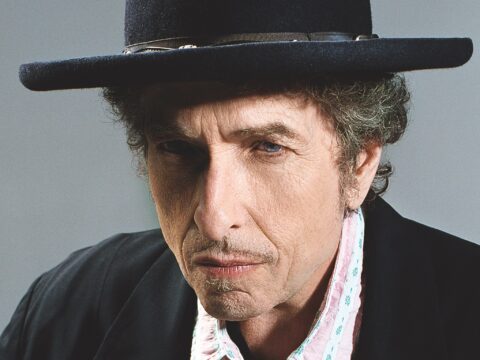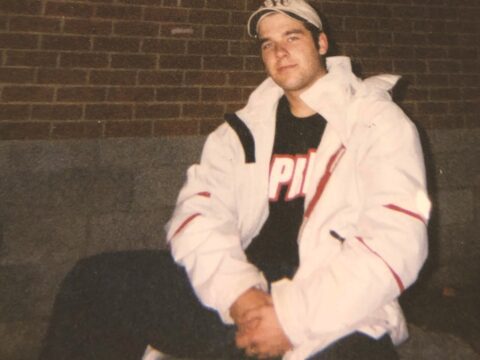Canadians travelling abroad may be surprised to learn how little the Canadian government may help them if they get arrested, even if their human rights are violated. Adequate consular assistance or repatriation is not necessarily guaranteed or consistently offered.
Global Affairs Canada, a government department with 260 offices around the world, provides consular services to those travelling or living abroad. If a Canadian is arrested while travelling, its role is to ensure that rights under local laws are protected. Consular officers can visit the detainee regularly, facilitate contact with family in Canada, and ensure that health and well-being, including basic nutrition and medical care, are protected. If human rights have been violated, they may pressure the foreign authorities to provide some protection.
Global Affairs Canada has declared certain standards for its services. For example, once notified about an arrest, consular officials will attempt to contact the detainee within one working day and maintain regular contact.
But these standards are often not met. In 2018, the then-auditor general of Canada, Michael Ferguson, spoke about his office’s report on the subject: “In about two-thirds of the cases we examined involving a Canadian arrested or detained abroad, consular officers had not contacted the detained Canadian within 24 hours of being notified.” He added that officers contacted most of the detainees within a month, but some were never contacted. Also, the report says, Global Affairs Canada sometimes took between one and six months to assess allegations of mistreatment.
The audit found that the level of consular assistance varied. “There were cases we saw consular officials go above and beyond,” Carol McCalla, the principal auditor, told the Globe and Mail in 2019. “But, unfortunately, in other cases, we found they did not meet the service standard, and we didn’t have any understanding why.”
More on Broadview:
- Canada came through for me. Not so for Sacha Bond.
- To forgive her daughter’s killer, Wilma Derksen turned to her faith
- The Uyghurs are being ethnically cleansed in northern China. Why aren’t we doing more?
Inequality in consular services has been a subject of debate. According to its website, Global Affairs Canada “aims to deliver consular services in a consistent, fair and non-discriminatory manner.” But since each person’s situation is different, a tailored approach is required, which is determined by consular officials.
Although the government does deliver some services to Canadians detained abroad, it is not legally obliged to help — at all. The NDP and some human rights organizations, like Amnesty International, have argued that Canada needs legislation to compel the government to provide equal consular services to all Canadians in need.
A parliamentary committee studied this suggestion in 2018, concluding that while “equality of service in the provision of consular services is essential,” introducing legislation “may make the situation worse by potentially increasing litigation in this area without substantially changing the government’s behaviour.”
Sacha Bond’s mother, Diane Levesque, contacted the Consulate General of Canada in Miami several times, but she says the office “was more of a thorn in our side than anything.” She adds that most of the answers from the consulate were so vague that she “would have found a better response on Google.”
Canadians imprisoned abroad can request to be transferred to a Canadian jail. These requests need the approval of the minister of public safety and emergency preparedness, the detaining country and, for state offenders in America, the state.
When deciding about each transfer, the minister considers several factors, including the prisoner’s ties to Canada, whether the prisoner’s return would be a threat to Canada and whether the foreign prison is unsafe for the prisoner.
Although the government does deliver some services to Canadians detained abroad, it is not legally obliged to help — at all.
From 2004 to 2016, the ministry received an average of 230 transfer requests per year. Liberal ministers approved nearly all transfers, while Conservative ministers approved about 70 percent. In 2018, a spokesperson for Liberal MP Ralph Goodale, then minister of public safety, told CBC News that transferring prisoners “can help ensure that they are properly rehabilitated subject to supervision and controls.” But MP Pierre Paul-Hus, then the Conservatives’ public safety critic, defended the Harper government’s track record, telling the CBC that instead of approving all prisoner returns to serve out their sentences at taxpayers’ expense, they “made decisions on a case-by-case basis as to what was in the best interests of Canadians.”
In 2007, Bond requested transfer twice but was denied by Stockwell Day, then minister of public safety, who wrote that Bond “was involved in the commission of violent offences involving the use of a firearm,” hence his transfer “would threaten the safety and security of Canada and its citizens.”
“Sacha was devastated when he received their response,” Levesque remembers. “Having his own government throwing him under the bus.”
Bond’s story is tragic but not unique. As of April, more than a thousand Canadians are imprisoned abroad, and over half of them are detained in the United States. “There are hundreds of Canadians that are suffering and are in the same situation as my son when he was alive,” says Levesque.
***
Abbas Mehrabian is a recent Broadview intern.
This story first appeared in Broadview’s June 2021 issue with the title “Who does Canada help?”
















Sadly, some of us are the architects of our own misfortune. Simply listening to the news would give a person enough information to know which countries are dangerous to visit. When we go to another country we are subject to its laws, even if the law, in our mind, is unreasonable. Some people do commit crimes or do dumb things. Should it be our government’s obligation to get them off the hook? Hard to say. I don’t like injustice in any form but if you’re in someone else’s country, a bit of education and common sense should keep you fairly safe.
Sacha was 19 years old suffering from bipolar disorder and anxiety who was arrested for aggravated assault , he refused a plea deal of 10 years. Because he went to court they wanted him to pay, he was charged with 4 counts of attempted murder and 20 years in prison for a crime he did not commit. So many lies were told during his hearing, the arresting officer stood in the box under the influence of alcohol/drugs he had been fired from MCSO Monrie County Sheriffs Office less then a year after my son’s arrest, he couldn’t answer, “What is the legal drinking age in the State of Florida, the judge told him to get off the stand. another was caught lying in the stand. So many things were wrong during his trial that i created a list. It was suggested to Sacha by the Canadian Consulate in Miami”Not to file an appeal” but rather apply for an International Transfer of Offenders, Sacha fit all of the criterias for a transfer back to Canada in order to serve his sentence closer to family and was told that within 18 months he would be transferred to a Canadian prison, that is not what happened, eventhough the Can.gov aporoved his transfer the US gov Denied his transfer without aby reason eventhough they are part of ITO. Sacha was kept in confinement for months. In Canada prisoners that are kept in confinement for more than 15 days is considered as Torture, especially someone who already has mental health disorders. Canada did nothing. It is a fact that the US gov. Sees Canada as a countrywho is TOO SOFT ON CRIME, they wanted him to pay for wanting his case to go to trial. If Sacha would have been transferred to Canada to serve his sentence he wiuld have been released in 2014 or earlier, instead his release date was Jan 2024, with his accumulated gaintime (good behaviour) his release was down to July 2022. Sacha was a good kid, kindhearted and soft spoken, he didn’t deserve to be abused in a US prison for over 16 years. His 20 year sentence was a death sentence 😞😢🙏